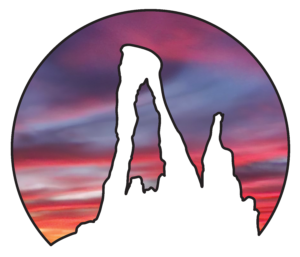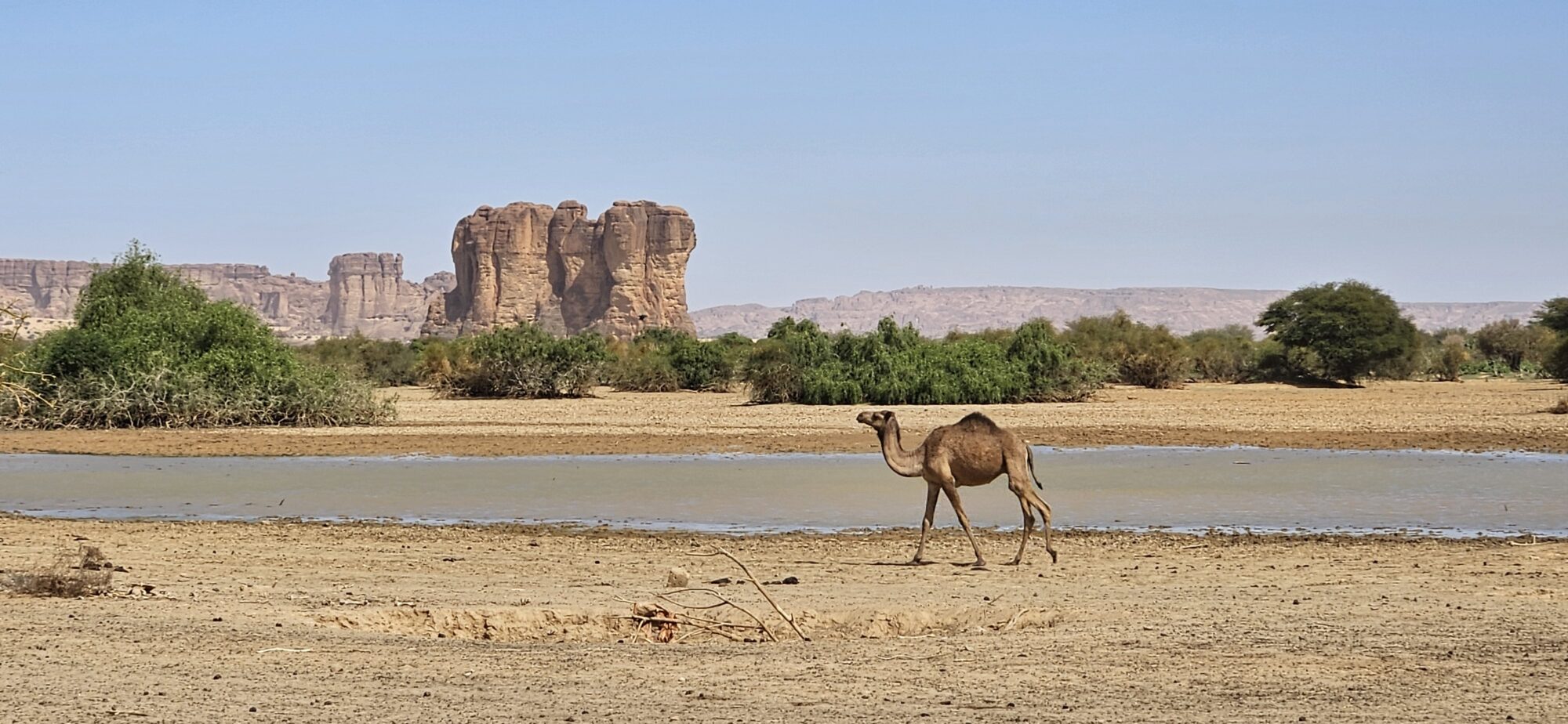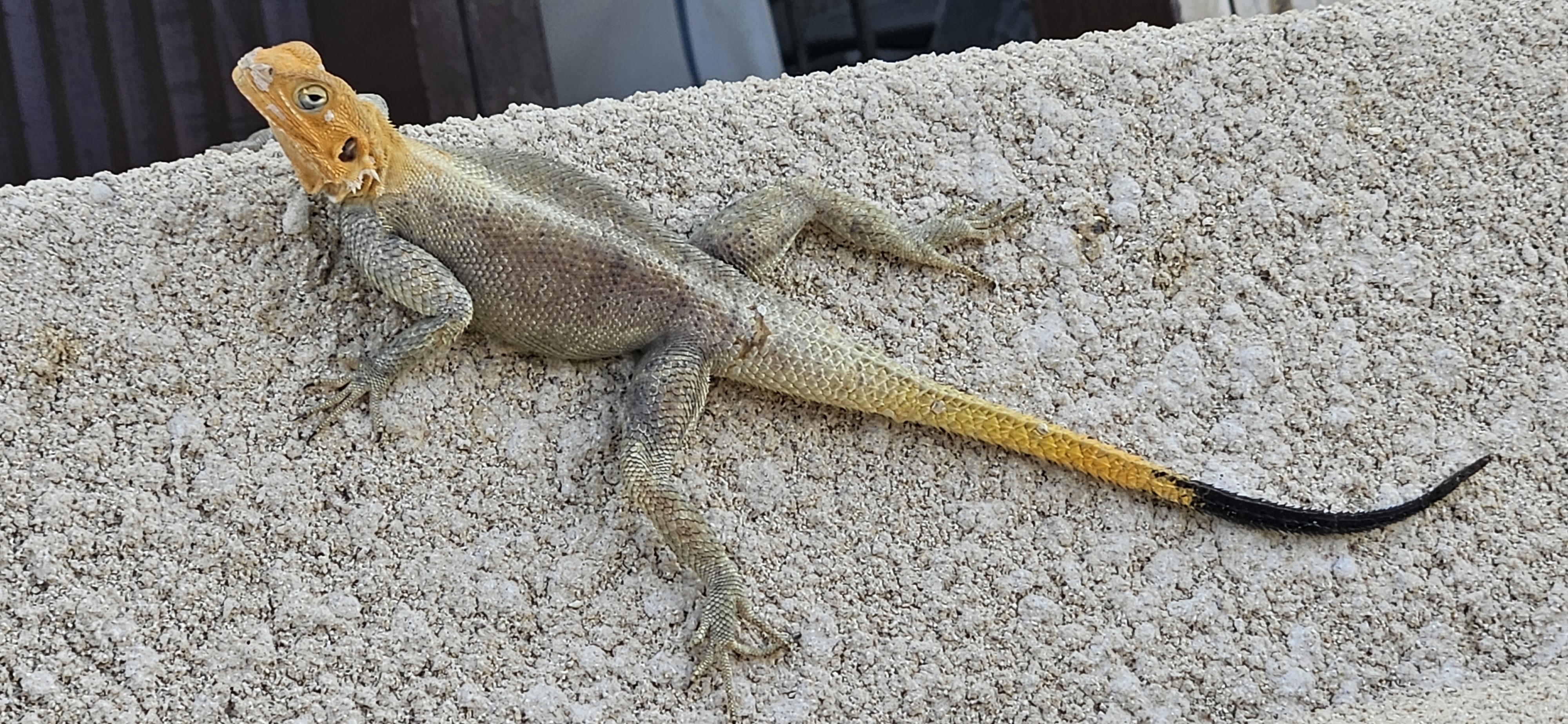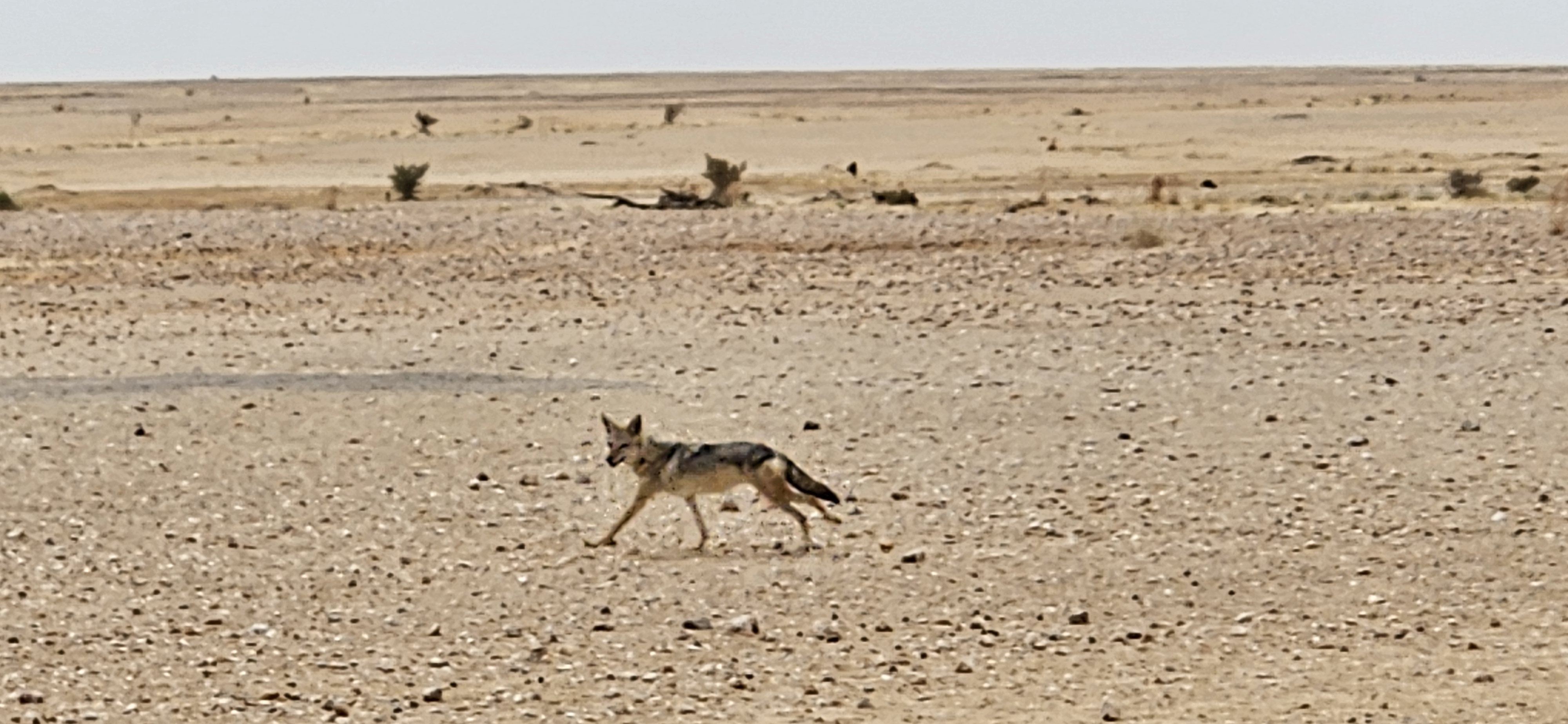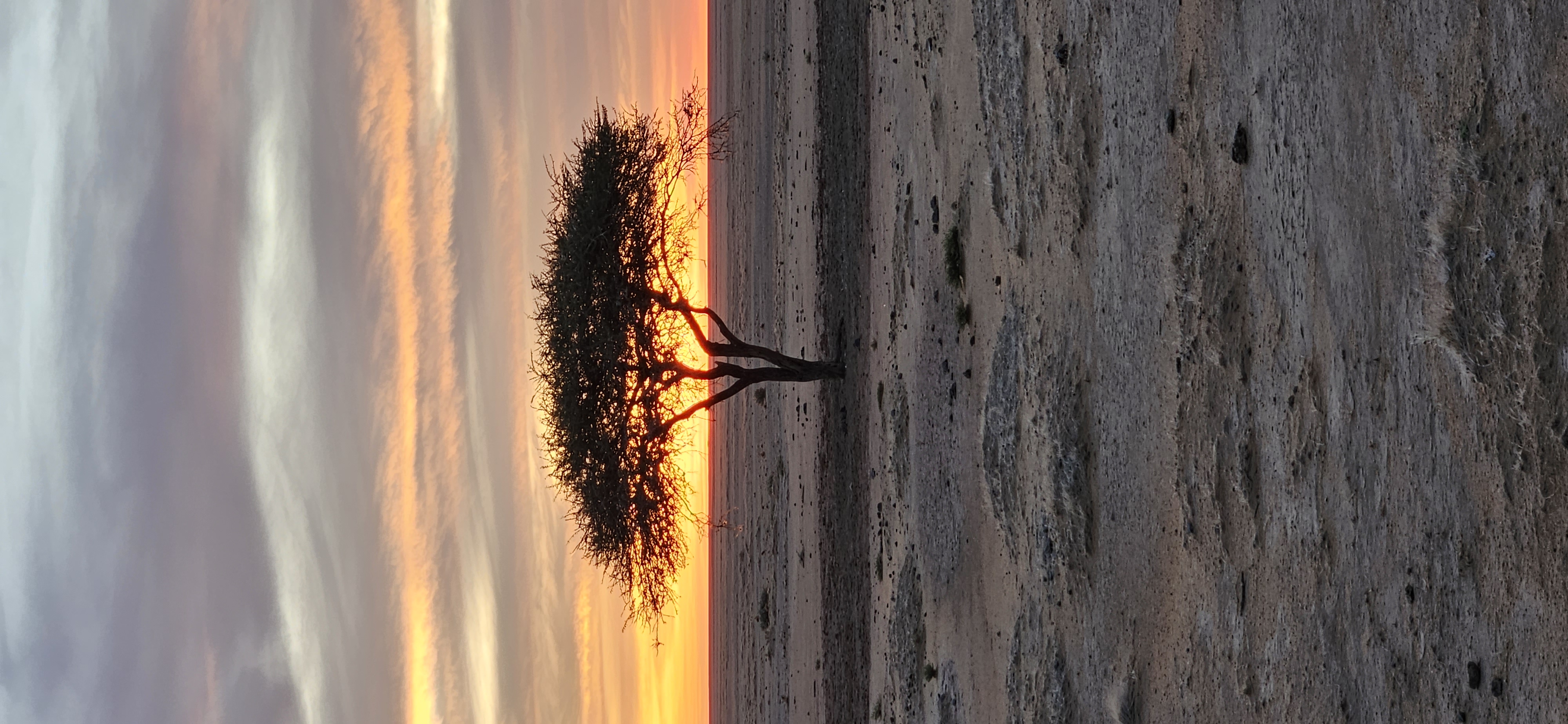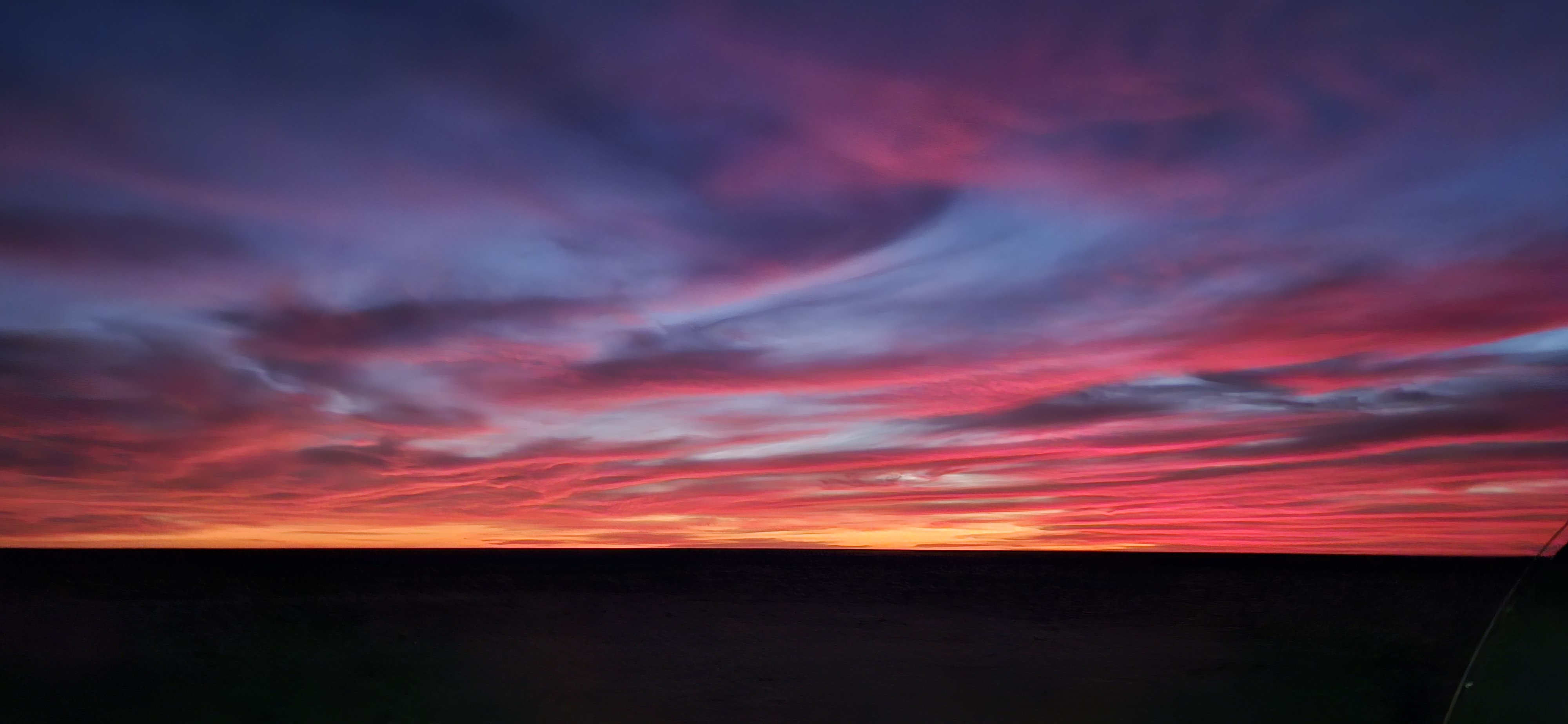We spent fifteen amazing, grueling, mind-blowing, exhausting days in Chad. Of those days, the better part of eight of them were spent sitting in the back seat of a Toyota, pounding our way around the country. We saw a LOT of the country out those dusty back seat windows!
Riki’s thoughts…
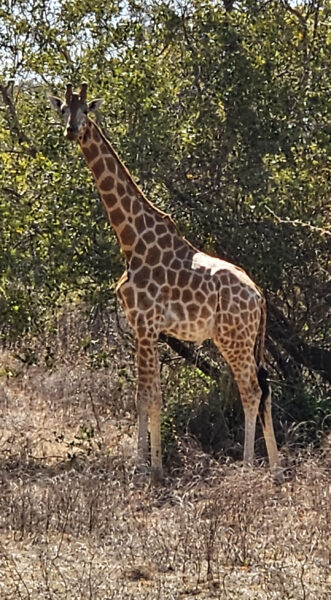
Our perceptions of Chad formed during those miles only told part of the country’s story. Here is a bit more from information gathered from the World Factbook, Chad (link).
Chad is about 494,000 square miles of desert in the north and tropical in the south. We enjoyed the desert while at Ennedi, and the tropical while at Zakouma and N’Djamena. It is the largest of Africa’s sixteen landlocked countries. 18.5 million people live in Chad, nearly 10% of them (1.6 million) live in the capital city of N’Djamena. We spent two nights in the capital city, but the only part we saw was the relatively-short route from the airport area to the edge of the city. Our hotel was very near the airport, and our tour company took us back and forth. We stayed at the lovely Residence Hotel, in our comfortable room, sitting poolside playing cribbage, or eating in the high-quality restaurant. We had no desire to venture forth from the secured walls that surrounded the hotel. We would have liked to see the lake for which the country was named, but local ethnic fighting made it too dangerous. The closest we got was driving along the two rivers that meet at N’Djamena and drain into Lake Chad, the Chari and the Logone.
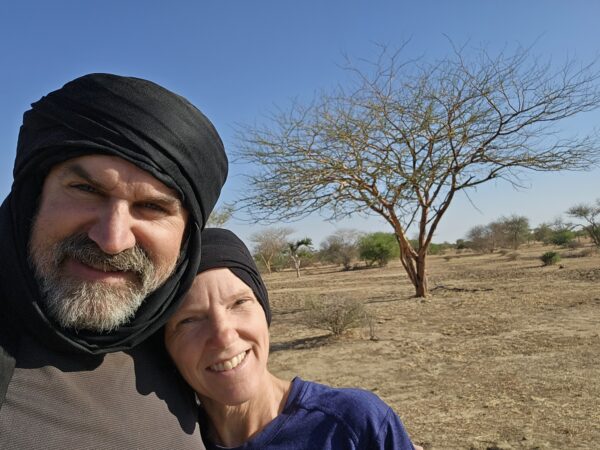
Instability is a big part of Chad’s history. Kingdoms had been warring for control over regions of Chad since the ninth century. Important trade routes in the north and valuable water resources in the south were claimed and fought over and claimed again from the ninth to nearly the twentieth centuries. In the 1880’s France sent troops to Chad, and slowly gained more and more land from local kingdoms until it claimed all of what is now Chad in 1910. In 1960, Chad gained independence from France. Three decades of instability followed from both internal and external pressure. In 1990 General Idriss DEBY led a revolt against President Hissene HABRE. DEBY was killed during a rebel uprising in 2021. His son Mahamat Idriss DEBY gained control shortly after his father’s death. His first act as president was to dismiss the national assembly, suspend the constitution, and institute the Transitional Military Council, that still holds power. His promised democratic elections to be held in October 2022 have been postponed until October of this year.
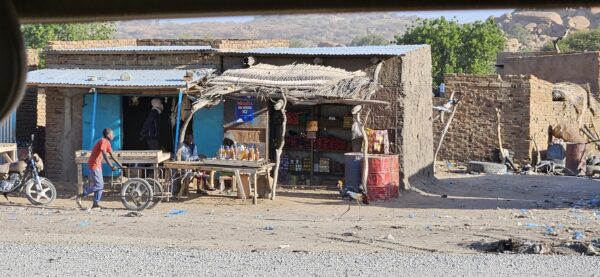
Our chatty driver/interpreter/guide Yves told us a story as we were driving up to the Ennedi. We were driving by abandoned military vehicles, through an abandoned village that showed signs of damage from war. He said that in 1987, Libya had invaded Chad. Chad’s military was in the south of the country, and according to him, walked from the south to the north to stand against the invasion. He was proud to say that they were able to push Libya out of their country. In history books, this war called the Toyota War because the only vehicles that the Chadian military had was a fleet of Toyota 4×4’s.
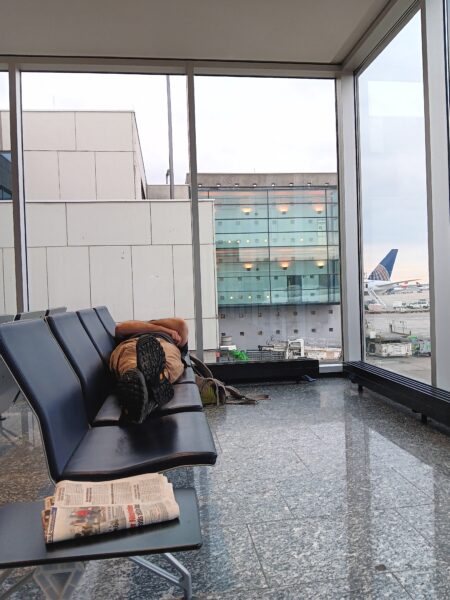
As we drove through villages on our route, they looked like they had remained largely unchanged for hundreds of years, except for the booths where you could buy prepaid minutes for your cell phone, and for a handful of more modern products for sale. There was no indication of water or electricity in the homes or in the stores. The restaurants were cooking over gas or wood heat, and even “cold” drinks were often just drinks in coolers that were not plugged in. The statistics of Chad bear out the proof of what we saw. 24% of the people in the country live in cities, with the large majority living in villages or temporary nomadic dwellings. 1.86 million people in the country will face dangerous food insecurity this year. 15 million people do not have electricity, and 40% of the population is drinking unimproved water. The only source of electricity by statistics is fossil fuels (96.8%) with a sparse 3.2% generated by wind, and officially 0% by solar power. This may be changing, as we saw a half dozen or more villages with small, secured solar facilities that Yves told us belonged to Tesla.
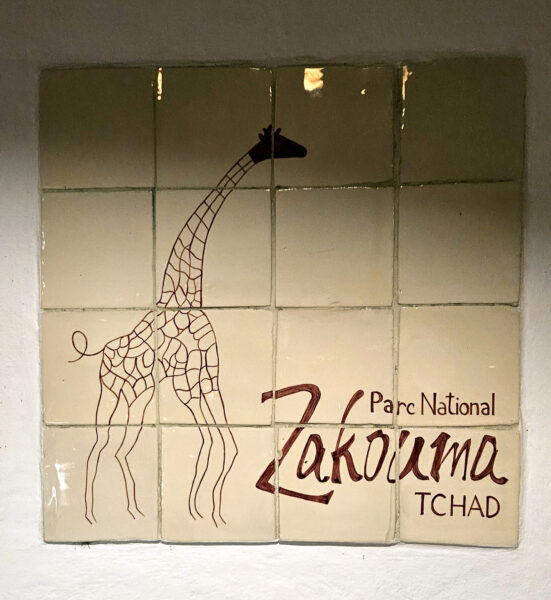
Some of the larger villages we drove through had schools, and we were lucky enough to travel through some as school was getting out. We saw children walking home from school in their uniforms. Yves mentioned that many children up north were not permitted to go to school, though there were often schools available, because the children were needed to tend livestock. We saw evidence of this all over northern Chad. Herds of camels, goats, sheep, cattle, and donkeys were being tended by young children, many of them alone. They seemed to enjoy time at the common watering places, where they got to interact with other herders after long times of being alone with the livestock. Children in Chad take an average of seven years of school, with most schools having classes only in the morning. Nationwide, literacy rates of those over age fifteen are 26% (18% for females). The unemployment rate for youth ages 15-24 is 2%. For women, 70% will be married (25% by age 15, 60% by age 18) compared to 8% of 18-year-old men.
One trend-buster of this developing country is the high rate of mobile phone usage. 60 out of 100 people in Chad have cell phones. It is as though they skipped over land telephone usage and went straight to cell phones, a much better option in a largely-nomadic country. To end this survey of Chad’s culture, here is a fun and fascinating information about the name of the country. It is officially the Republic du Tchad (or Tshad). This name comes from a word that shows up in several native languages, tsade, which means a lake or a large body of water. The country, then, is named after the large lake in the country, which is Lake Chad (technically Lake Lake), which hearkens back to the American phrases Na’an Bread (bread bread) or Chai Tea (tea tea). Chad is the only country whose name is composed of a single syllable and contains a single vowel.
For those of you who are still reading this post, I commend you for your patience with our social studies lesson. And I think that Kelly may question his offer to have me write this post. Here is some feely-relational stuff, thoughts as we wrap up the Chad portion of our blogs.
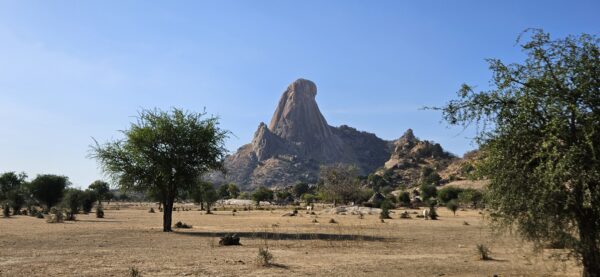
I loved our time in this country. It was hard. Twelve days without bathroom facilities (shower, toilet, sink) wasn’t the hardest part. My respiratory, digestive, and infection battles were not the hardest part. The long, isolating hours in the car were not the hardest part. The hardest part was overcoming the battle in my mind. I was constantly deciding whether to focus on hardship or on wonder, to think about what was going wrong, or what amazing things were unfolding. I was surrounded by sights, sounds, smells, tastes, experiences that I had never had before, and I did not want to miss a thing. The people fascinated me because their lives were so different from mine. The children captured my heart and broke it at the same time. I wanted to connect with each of them, but they were untrusting and fearful of me. I found that ironic because of my deep love for children and because of how often fears have held me back, as well. The animals (wild and domestic) were thrilling to me. The geography was like New Mexico, and unlike it at the same time. I am grateful beyond words for my time in Chad. It was transformative. I would never have been able to take this trip, if Kelly had not made it happen, and was generous enough to take me along for this trip of a lifetime.
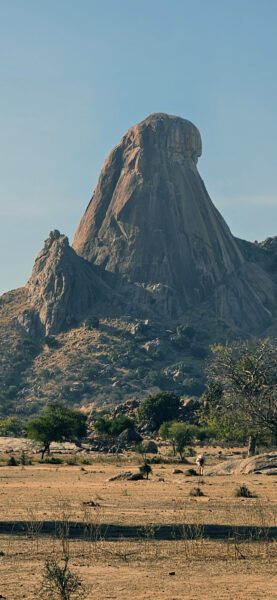
As I have now been back in the United States, back in our comfortable home in New Mexico, I am facing the same battle of the mind, and I am sad to say that it was easier to stay positive in Chad than it is when I face the mundane challenges of everyday life. I imagine I am not alone in this battle of focus. The things that are difficult seem to distract me, demanding my attention. There are many lovely, amazing, simple things going right for me, but it is harder for me to see them now that I could in Chad. I will stay in the battle, hoping that gratitude is a muscle that becomes stronger when exercised.
Kelly’s thoughts…
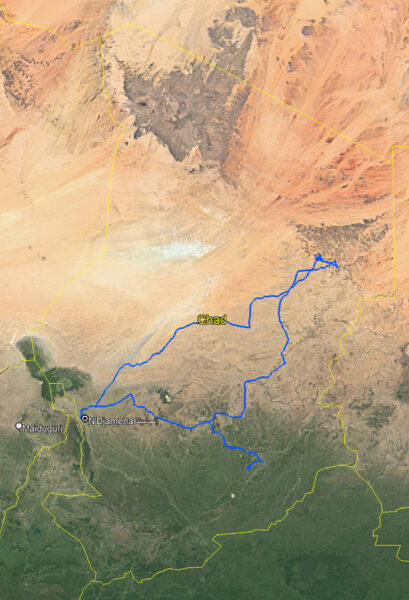
Riki summed everything up very well! After Zakouma, it took a day and a half more to return to N’Djamena, so we were left camping along the road one more night. We left Zakouma early, drove the bad roads back to Mongo and then farther, but on better, paved roads from there. In some ways it seemed just fine to camp one more night, we were so used to it by then.
I will remember Chad for its wildlife, wild lands and wild people. I’ve not been in such a remote place anywhere during my world travels, and as a lover of remote places, it is now a special favorite. The Ennedi is the place of dreams and rustic imaginations. The canyons and spires and arches echo with the sound of camels, and you can almost hear the voices of people long dead for thousands of years resonating in the voices of those who still move across the region.
Zakouma was a gem in the vastness of northern Africa with a tremendous diversity of animals that have survived incredible challenges. We were blessed to get a brief glimpse of that diversity, enough to want to return for more.
And the people of Chad are so unique and rugged. They are beautiful and proud and so uniquely capable of living in one of the most unforgiving and isolated places on earth. We were lucky to get to know just a few of them.
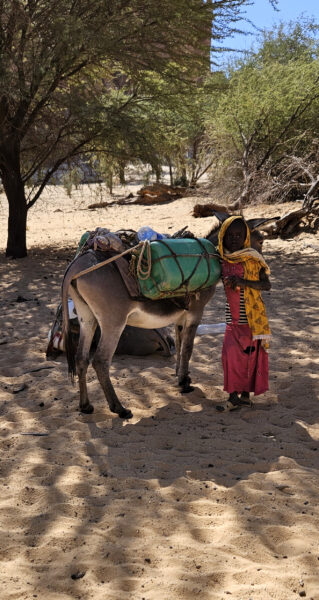
Once back in N’Djamena we stayed at the same hotel for another night. It was a little surreal to be back there after all we had experienced. Such trips are transformative, and we felt different. Riki, especially, despite still feeling ill, seemed more confident, more self-assured.
We spent a night in relative comfort with warm showers. Even so, we were ready to leave this amazing country. The next day, we enjoyed a breakfast and time by the pool. Our flight out connected through Adis Ababa again. Here, Riki was much less overwhelmed by feeling out of place, though we clearly were in so many respects.
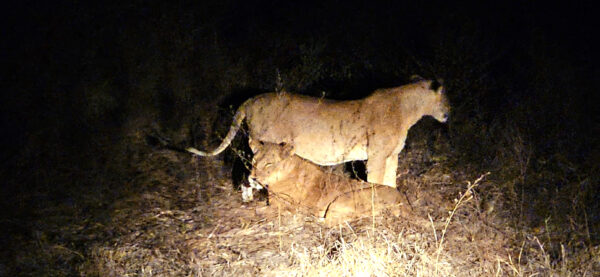
We were ready to return home, back to the familiar, but first, we had a few days to spend in a place so different from where we had just been. When I originally booked our trip, I noted that we were flying through Europe near Christmastime. So as we left Chad, we were looking forward to having our Christmas in the home of Strauss and Wittgenstein, Freud and von Frisch. We were on our way to holiday in Vienna.
